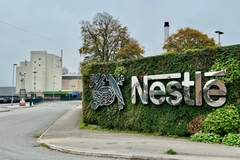
- Industry news
Industry news
- Category news
Category news
- Reports
- Key trends
- Multimedia
- Journal
- Events
- Suppliers
- Home
- Industry news
Industry news
- Category news
Category news
- Reports
- Key trends
- Multimedia
- Events
- Suppliers
Investors Press Meat Producers to Reduce Water Pollution

21 Nov 2016 --- 45 leading institutional investors are pressing some of the nation’s largest producers of meats to address the significant water pollution risks associated with feeding, slaughtering and processing livestock.
The investors, who collectively manage over $1 trillion in assets, have sent joint letters to four of the largest producers in the meat industry, Cargill, Inc., JBS, Perdue Farms, and Smithfield Foods in the lead up to Thanksgiving.
The letters come one month after Hurricane Matthew inundated poultry and hog farms in North Carolina, flooding manure lagoons and killing more than two million chickens, turkeys and hogs.
“As investors analyzing water risks in our portfolios, we believe that robust management of water quality challenges is a critical aspect of risk management in the meat industry, and one of increasing importance in the context of climate change and growing weather extremes,” the investors wrote.

Investors who signed onto the letters are members of the nonprofit sustainability organization Ceres and the Interfaith Center on Corporate Responsibility.
“Broad mismanagement of local water resources can lead to devastating regulatory, reputational, and litigation risks, weakening a company’s ability to operate profitably,” said Kristel Verhoef, Active Ownership Specialist at ACTIAM, which has 56 Billion Euro in AuM.
The effort comes on the heels of several shareholder proposals filed with other meat sector players, including Tyson Foods, Hormel Foods, Pilgrim’s Pride and Sanderson Farms, that call for improved water management.
“Comprehensive water stewardship policies are critical to avoid the risks present at several points in the supply chain of meat producers like Hormel,” said Sister Patricia Daly of the Tri-State Coalition for Responsible Investment.
“We are encouraged by the company’s commitment following the withdrawal of our shareholder proposal, to put a water stewardship policy in place that will apply to major suppliers, contract animal growers and feed suppliers.”
Last year, Ceres released a report that ranks major food companies on water risk management. Several meat companies including Tyson and JBS were identified among the worst performers.
A recent report from Environment America ranked Tyson as the biggest water polluter in the meat sector, releasing 104 million pounds of toxic pollutants into waterways from 2010 to 2014 from its slaughtering and processing plants, and buying livestock that generates approximately 55 million tons of manure per year.
During the same time period, it is estimated that collectively Smithfield (27.3 million lbs.), Cargill (50.4 million lbs.), JBS (37.6 million lbs.) and Perdue (31 million lbs.) directly released 146.3 million pounds of toxic pollutants into U.S. waterways.
Fines for violations of wastewater permits have proven costly to the industry.
In 2010 JBS paid $2 million over the failure of a facility to comply with the Clean Water Act and the Pennsylvania Clean Streams Law. JBS was also required to improve operations by reconstructing wastewater systems at an estimated cost of $6 million.
However, some companies have begun responding to these concerns. Last month, meat processor Hormel Foods, along with several other companies joined the Ceres-World Wildlife Fund AgWater Challenge, an initiative to advance water stewardship in the food sector.
The company committed to developing a comprehensive water stewardship policy, setting water management expectations that go beyond regulatory compliance for its major suppliers, contract animal growers and feed suppliers – a meat industry first.
“With climate change, business-as-usual management of the more than 300 million tons of manure produced annually by the U.S. livestock industry is no longer feasible,” said Brooke Barton, Senior Program Director of Water and Food Program at Ceres.
“Hurricane Mathew’s effects underscore the vulnerability of meat companies – and their shareholders – to growing risks stemming from large-scale water pollution events.”
Nadira Narine, ICCR Senior Program Director and co-coordinator with Ceres of the initiative, says, “These letters highlight the need for these companies to address the reputational, legal and regulatory risks of being a large polluter.”
“All companies need to minimize effluent discharge beyond compliance levels, and set related goals and targets.”
Marcela Pinilla, Senior Analyst at CBIS says the Human Right to Water and Sanitation, recognized in 2010 by the United Nations General Assembly, underscores the importance of a corporate role in ensuring that water impact risks are managed.
“In our upcoming engagements with JBS SA and Smithfield/WH Group, we will seek to encourage the inclusion of community impact risks as an element of a comprehensive water stewardship plan.”










